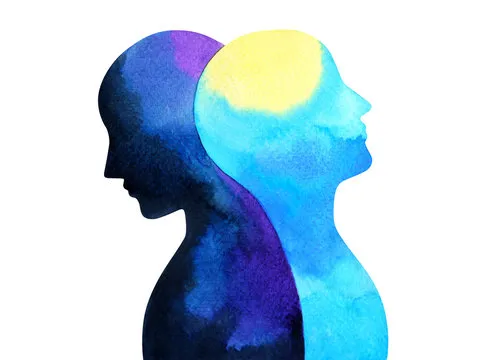Ketamine therapy, originally developed as an anesthetic in the 1960s, has become a groundbreaking treatment in mental health care. It has demonstrated success in addressing treatment-resistant conditions like depression, PTSD, and OCD, offering relief when traditional methods fall short. Researchers are now studying its effects on brain structure and function, including its potential to promote neurogenesis, a process linked to emotional resilience and recovery.
Neurogenesis and Mental Health
Neurogenesis, the process of generating new neurons, is key for maintaining brain health throughout life. While it is most active during early development, certain regions of the adult brain, such as the hippocampus, retain the ability to produce new neurons. This region is critical for memory formation, learning, and regulating emotions, making it a focal point for mental health research.
Reduced neurogenesis is associated with mental health conditions like depression and PTSD, where diminished neuron production contributes to symptoms. This decline can affect the brain’s ability to adapt to stress and process emotions effectively. Stimulating neurogenesis offers the potential to rebuild neural pathways, helping to restore emotional resilience and improve cognitive function.
Ketamine Therapy and Neurogenesis
Ketamine therapy works by modulating glutamate, a neurotransmitter involved in synaptic connections and brain plasticity. This mechanism differs from traditional antidepressants, which primarily focus on serotonin and norepinephrine pathways.
Ketamine increases brain-derived neurotrophic factor (BDNF), a protein that supports neuroplasticity. Elevated BDNF levels allow the brain to form and reorganize connections, aiding recovery from mental health challenges. Early animal studies suggest ketamine may also encourage neuron growth in the hippocampus, reversing neural damage caused by chronic stress and depression.
Research Highlights
Studies show that ketamine enhances neural connectivity and provides symptom relief within hours or days, far faster than traditional treatments. Research also suggests it fosters lasting improvements by promoting long-term changes in neural pathways and brain plasticity. While much of this evidence comes from animal models, clinical trials are exploring its impact on human neurogenesis and potential for broader applications.
Factors to Consider for Ketamine Therapy
Ketamine therapy offers significant promise but may not be suitable for everyone, requiring careful evaluation. The treatment’s success and safety rely on proper administration and monitoring. Exploring key factors can help individuals make well-informed decisions about pursuing this option.
- Treatment Supervision: Ketamine should be administered by trained professionals in a controlled setting. Clinics offering comprehensive care, such as incorporating psychotherapy alongside ketamine administration, tend to provide better long-term outcomes.
- Side Effects: Common side effects include nausea, dizziness, and temporary dissociation. Severe risks are rare but possible, making proper medical oversight critical.
- Addictive Potential: While ketamine is safe when used appropriately, misuse outside of medical guidance carries a risk of dependency.
The Future of Ketamine Therapy
Ketamine therapy offers new possibilities in mental health care, particularly for those with treatment-resistant conditions. By enhancing neuroplasticity and promoting neural growth, it provides relief beyond symptom management. As research continues, ketamine may redefine mental health treatment, offering innovative and effective solutions. If you’re seeking new approaches to mental health care, consult a qualified provider to explore whether ketamine could be right for you.
